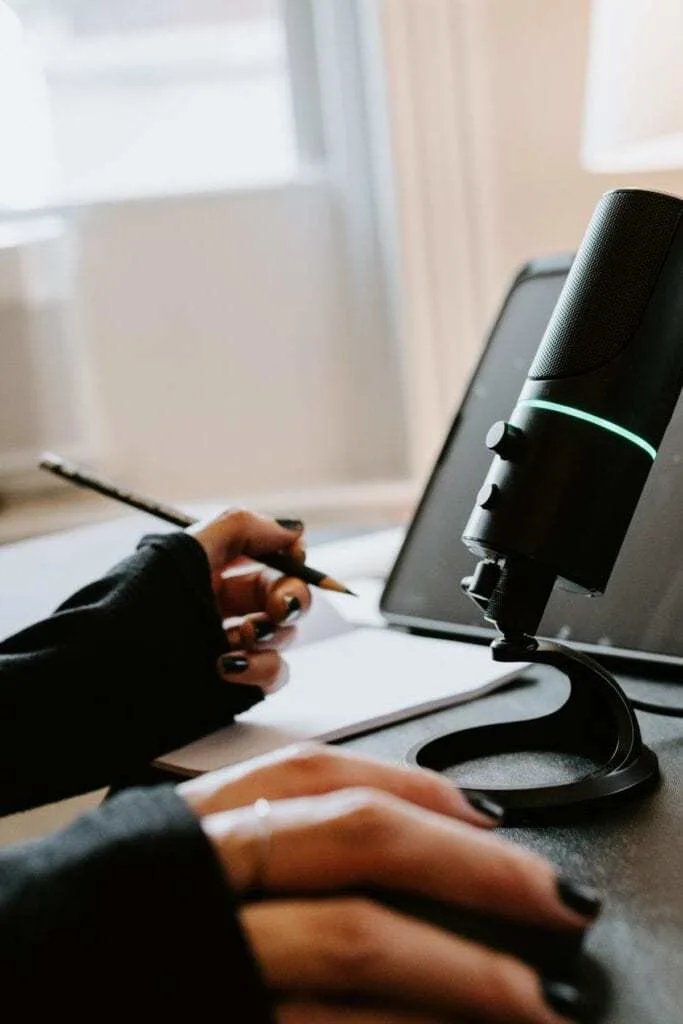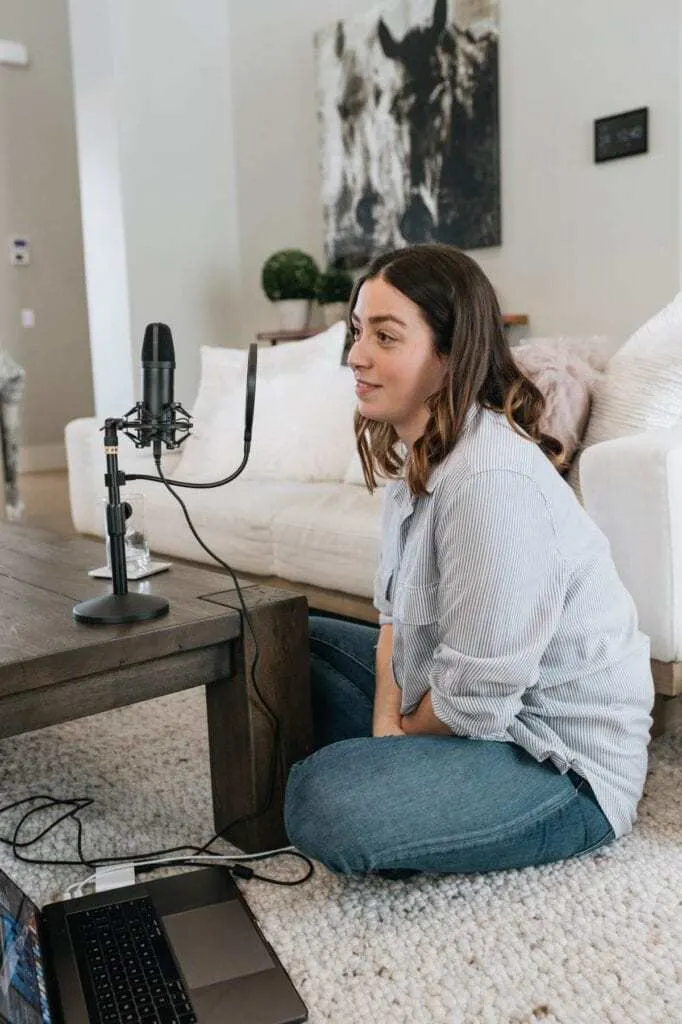Would you like to learn a new language with podcasts?
The internet has brought us many new language learning tools, among which the podcast.
For those who have been living under a rock, a podcast is like a radio show, without the musical interruptions, and you decide when you listen to it.
Since the invention of podcasts, it has become a great favorite of both language instructors and language learners.
Tip: We have some podcast suggestions for people learning Spanish, French, Italian, German and Portuguese.

Why should I learn a new language with podcasts?
It’s made for language learners
Anyone can start a podcast, which means these days you have endless options when it comes to picking one out.
Besides picking one that is close to your interests, there are many podcasts out there that are made for language learners. This means they will focus on stories that will be interesting for foreigners, share a little bit of cultural information, and help you learn your target language.
Even within the category of language learning podcasts, you will find many different types focussing on different aspects of language learning, as well as different levels of language skills.
Whatever it is you are looking for, you’ll sure find one that matches your needs.
Learn at your own speed
Literally.
The great thing about podcasts is being able to adjust the playback speed to be slower or faster than the regular speed. If things are going too fast, play it at 0.75x, but if a podcast is making a deliberate effort to speak clearly and you think you can handle a bit more speed, change it to 1.25x and really train your listening skills.
Improve your pronunciation
The great thing about radio, audiobooks and podcasts is that because you are only listening, it really trains your ear to focus on the pronunciation.
Many times, a foreign accent is a result of your brain thinking certain letters that are written down should be pronounced a certain way. This can be because of your native language, or because the pronunciation of a word doesn’t always make sense with phonetic rules.
By solely focusing on the listening you are training your ears to hear past the written form of words, and simply hear the way native speakers are pronouncing them.
You can do it anywhere, anytime
As long as you have your phone with you (and let’s be honest, that is pretty much always), you can put on a podcast and start the language learning.
Whether you are brushing your teeth, commuting to work or taking a deliberate moment to practice your language skills, your favorite podcasts are always available and ready.
It’s free
Language learning isn’t just for those who can afford fancy language schools.
Podcasts are freely available across many platforms like Apple podcasts, Soundcloud or Spotify.

How can I learn a new language with podcasts?
Okay, so we’ve gone over the why, but how exactly do you learn Spanish with a podcast?
Use lost time
One of my favorite things about podcasts is that because you are only listening, you can do it while doing something else.
Of course, to really take something in you need to pay some attention, but I used to listen to podcasts on my way to class, while walking the dog or even when I was cooking and cleaning.
It’s a great way to practice your Spanish skills while doing something else, and taking advantage of the time you are already spending on another mindless activity.
This way, you don’t need extra hours in the day, you can simply use the ones you already have to squeeze in a little extra language learning.
Create a habit
Building on the previous point:
If you have a daily commute, walk, or time dedicated for language learning – make it a daily or at least weekly habit.
Nothing will help your Spanish skills unless you do it on a regular basis.
If you have a daily habit that you can use to listen to podcasts, you can easily create a new habit without having to change your current lifestyle. After all, habits are easier to keep up when integrated into your already existing routine.
Listening practice
Listening is one of the most daunting aspects of language learning because it happens in real time.
Where an online chat conversation leaves time to think, or a quick Google Translate consultation, actual conversations happen in real-time, and if you have difficulty understanding spoken Spanish, it can be a real struggle to have a conversation with a native speaker.
Podcasts offer you a safe space to practice your listening skills without having to answer back immediately. Unlike movies, you don’t have the visuals to help you understand context and meaning, but it is precisely the pure audio based learning that will help you master the skills of listening to an actual conversation.
Cultural Context
Language and culture are two things that can not be separated. That is why many podcasts try to teach a language while talking about culture.
This is great, because it allows you to practice your skills, learn vocabulary that will be relevant when speaking to native speakers, and allows you to better understand the language as something beyond the rules of grammar.
Though it is great to be able to have a regular conversation about what your name is, how old you are and what your favorite color is, it is even better when you are able to reference a national holiday, or talk about music.

Find something that matches your skills
There is no fun in listening to something you don’t understand because it’s way too complicated, or something that is too easy.
Not all language learning podcasts are alike, and neither are podcast listeners, so make sure you find one that matches your language skills as well as your interests.
Write a review
Many podcasts are available for free, but that doesn’t mean you can’t help the creators. Let them know what you think, and show off your Spanish skills by writing a review in Spanish.
Focus on the pronunciation
Because it is purely audio based, podcasts are a great way of improving your pronunciation.
Repeat a certain fragment and try to speak along.
Instead of listening for words, try listening for syllables. This will make it a lot easier to break down sounds and really get that native-like pronunciation.
Write down a phrase or paragraph, then record yourself saying it and compare it to the podcast recording. Comparing directly can help you pin-point and improve the areas you are struggling with the most.
Look at the transcripts
Many podcasts these days offer a transcript of what is said. This allows you to read along, or refer back after you’re done listening to an episode.
This way you can easily see the spelling of new words, and look them up if you are unsure what they mean.
Are you ready to learn a new language with podcasts?
